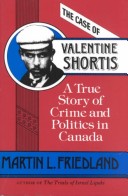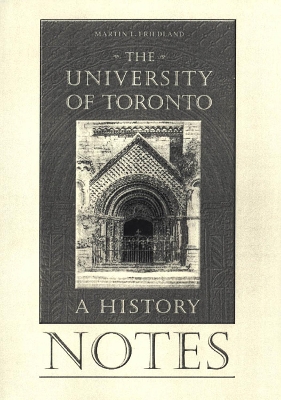Heritage
2 total works
As well as Laurier, other prominent Canadians made appearances in the case. Lady Aberdeen, the wife of the govenor-general, mysteriously put a word in the ear of Sir Charles Hibbert Tupper, the young minister of justice. We meet the larger-than-life psychiatrists, C.K. Clarke and R.M. Bucke, sex-educator Arthur Beall, and even Mackenzie King and his spirits. Martin Friedland has vividly reconstructed one of the most dramatic criminal cases in Canada's history. Along the way he reveals much about our political past, the criminal process, French-English relations, and the history of psychiatry and corrections. Above all he tells a fascinating and compelling tale of murder and politics.
Two histories of the University of Toronto have been published, one in 1906 and one in 1927. Since the latter volume appeared, no comprehensive history of the University has been published. Given the size of the University and the complexity of the task, this is not entirely surprising. But, after sixty-six years, this gap in the intellectual history of Canada has been filled, and we are delighted to announce publication, in March of 2002, of Martin Friedland's new history of one of Canada's most important educational and cultural institutions.
The author of several books on legal history, Professor Friedland brings to this task an accomplished eye and ear and a status as a long time member of the University community. Professor Friedland's text is accompanied by over 200 maps, drawings and photographs.
Published to coincide with the University's 175th anniversary, The University of Toronto: A History tells the story of the university in the context of the history of the nation of which it is a part, weaving the stories of the people who have been a part of this institution - people who make up a who's who in the history of Canada.
Anyone who attended the University or who is interested in the growth of Canada's intellectual heritage will enjoy this compelling and magisterial history.

